Which Screw Extractor Should I Use When removing broken bolts and screws?
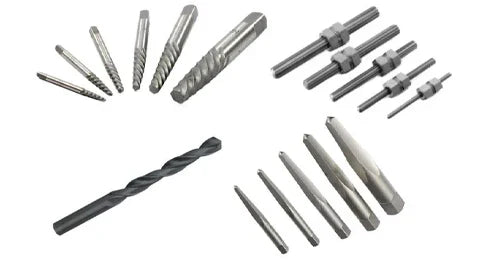
Ask any technician with experience using a screw extractor and they will recall how a challenging job grew into a disastrous job when the extractor broke, which turned away any hope of a productive and profitable repair.
For just about any repair, having the right tool for the job can make it easier and more productive. Having the right application for the tool is equally important – even when it comes to fixing a botched job.
When removing broken bolts and screws, there are a few popular options. Although all the following can be categorized as a “screw extractor,” many of these miss the mark.
STRAIGHT FLUTED TAPERED EXTRACTORS

Straight-fluted-extractors are a simple and low-cost option for removing a broken bolt or screw. Usually imported from China, they are made from low-cost steel and heat-treated to improve durability. As in most common screw extractors, a pilot hole is drilled then hammered in a tapered, four-sided piece of hardened steel that attempts to grip the inside of the drilled hole. The technician will then use a pair of vice-grips or a wrench by turning the extractor counter-clockwise in an attempt to remove the remaining remnants.
The problem with these types of extractors is the break-torque is often not specified simply because the variations in quality make it unpredictable and unreliable. Because they grip on the tangent of the interior drilled hole surface in usually just two places, they can easily lose their bite or worse yet, break off in the remnant set for removal. This low-cost option is usually best for soft materials like aluminum or softer metals under a Rockwell “c” scale Rc of 15 or less.
SPIRAL FLUTED TAPERED EXTRACTORS
Spiral fluted tapered extractors operate in the same manner as a straight fluted tapered extractor; however, instead of hammering them in as in straight fluted extractors, they screw in by turning the square head with a wrench or socket that sinks the extractor into the pilot hole of the broken bolt. Once set, the technician will use a pair of vice-grips to remove the remaining portion of the broken stud.
Identical to the straight tapered fluted extractors, they bite on the tangent of the hole with minimum contact. Both types can complicate the extraction process due to this ability to simply deform the broken remnant and actually pinch the bolt into the mating material. Although usually higher on the Rockwell scale of the two tapered types, spiral fluted tapered extractors are best used in harder materials. However, harder material manufacturing brings about a more brittle extractor with a higher tendency to break without warning.
STRAIGHT FLUTED EXTRACTORS WITH A TURN NUT
Straight fluted or splined extractors with a turn nut are just as simple to install as a straight fluted or spiral fluted extractor but with several key benefits. The technician drills a hole in the broken stud or screw, then hammers in the flute, as with the previous two examples. These extractors have six narrow sides, or splines, that cut into the remnant which offer increased points of contact and surface area inside the pilot hole.
This type of extractor allows for both clockwise and counterclockwise rotation so a technician can unlock the broken remnant by simply turning the extractor in either direction. They are far more effective and because of their larger cross-section at the points of contact, they resist breakage and provide higher break-torque specifications as well. To extract, the technician drops the slip nut over the spline to back the stud out.
Although more expensive than the other types, the advantage of the extractor with a turn nut is its resistance to deforming the broken stud or bolt, while delivering an equal distribution of force and torque directly to the extractor. This is the only style of extractor that ProMAXX Tool uses in our exhaust manifold repair kits due to its effectiveness, durability, and predictability on break-torque.
LEFT-HANDED DRILL BITS
To use a left-handed drill bit to extract a broken bolt or screw, the bolt must be ground as flat as possible. Then, a guide point is applied with a center punch. Next, the tech puts the left-handed drill bit into the chuck and drills the hole in reverse.
The objective is to get the drill bit to bite into the remnant of the stud. In theory, that sounds great. But, in reality, depending on the condition, the broken remnant may have corrosion in the path to extraction, jamming and locking the stud in. This increases the risk of fracturing the bit and complicating the repair.
When attempting to remove a bolt or stud and it fractures, a burr is often created when the bolt fails. This burr acts similar to a split type lock washer which bites into the mating material, increasing the torque required to extract it. Moreover, when force is applied, the remnant continues to bite in even more. The added ability of straight flute extractors to move in both directions allows the technician to dislodge the extractor without deforming it leads to a more predictable and productive repair.
All four of these extractors are effective tools based on the application they are used in. However, caution must be used to ensure the extractor isn’t over-torqued. As with all tools, quality is an essential factor, especially when performing a challenging repair. Lastly, spline-type extractors are made in the U.S., allowing for much more predictability and giving the technician much more productivity when working against the book time of the repair they are performing.
NEW AT PROMAXX
-
Wheel Bearing Hub Puller - Air Hammer Powered
Part#: PMXTOM475PROOriginal price $69.95 - Original price $499.95Original price$69.95 - $499.95$69.95 - $499.95Current price $69.95Original price $69.95 - Original price $499.95Original price$69.95 - $499.95$69.95 - $499.95Current price $69.95 -
Hold-A-Rotor® and Secure Disc Brake Rotors in Place on 12mm & 14mm Studded Hubs - STC71000
Part#: STC71000Original price $19.99 - Original price $19.99Original price$19.99$19.99 - $19.99Current price $19.99Original price $19.99 - Original price $19.99Original price$19.99$19.99 - $19.99Current price $19.99 -
Ford 6.7L PowerStroke, GM 6.6L Duramax Fuel Injector Fuel Line Puller Adapter Combo Kit – Powered by Air Hammer
Part#: PMXPWP955PROOriginal price $89.95 - Original price $699.95Original price$89.95 - $699.95$89.95 - $699.95Current price $89.95Original price $89.95 - Original price $699.95Original price$89.95 - $699.95$89.95 - $699.95Current price $89.95 -
Volvo 2.0L Drive-E, VEA Exhaust Manifold Bolt Repair USA Made for XC40 XC60 XC90 & More: ProKit W/Additional Accessories - Victoria
Part#: PMXV200PROOriginal price $349.95 - Original price $349.95Original price$349.95$349.95 - $349.95Current price $349.95Original price $349.95 - Original price $349.95Original price$349.95$349.95 - $349.95Current price $349.95 -
Fuel Injector Pullers quickly remove stuck EcoBoost injectors without engine teardown save 15 hrs Air-Powered for Ford 1.0L/1.5L/3.5L/3.7L engines
Part#: PMXPWP915AOriginal price $249.95 - Original price $629.95Original price$249.95 - $629.95$249.95 - $629.95Current price $249.95Original price $249.95 - Original price $629.95Original price$249.95 - $629.95$249.95 - $629.95Current price $249.95

SHIPPING INFO
For Saturday delivery or special shipping instructions, please contact ProMAXX Tool M-F 8 a.m. – 5 p.m. EST at 724-941-0941. Expedited Orders Placed by 1pm EST will be Processed Same Day | UPS Ground Processing Time is 1-3 Business Days

WARRANTY INFO
Offering a range of policies

NEED HELP
Contact our support team today
724-941-0941

Promaxx Tool Address
1121 Boyce Road
Suite #2000
Pittsburgh, PA 15241
Any motor company logo on this site is a Registered Trademark. ProMAXX Tool is not affiliated with any of the motor companies on this site.
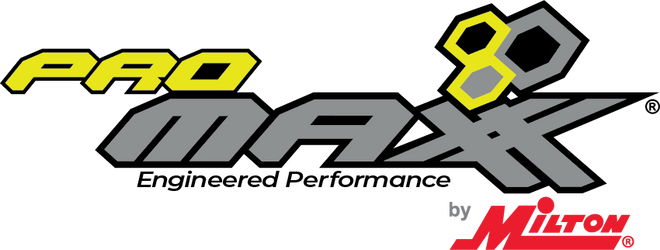
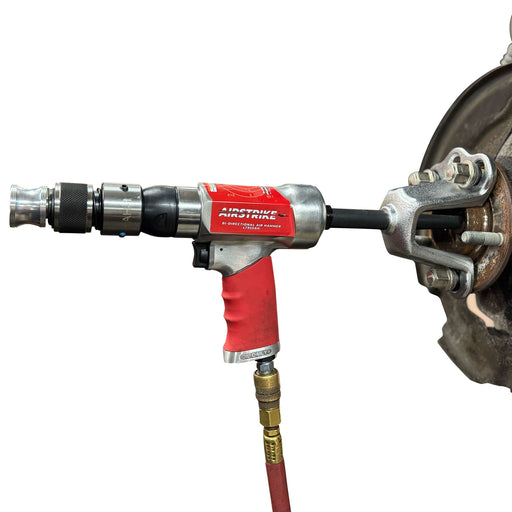
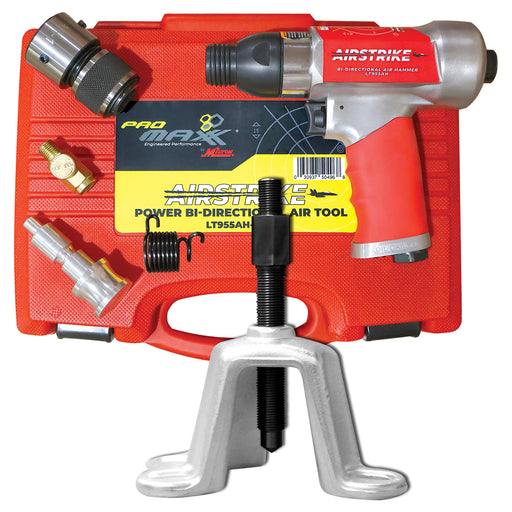
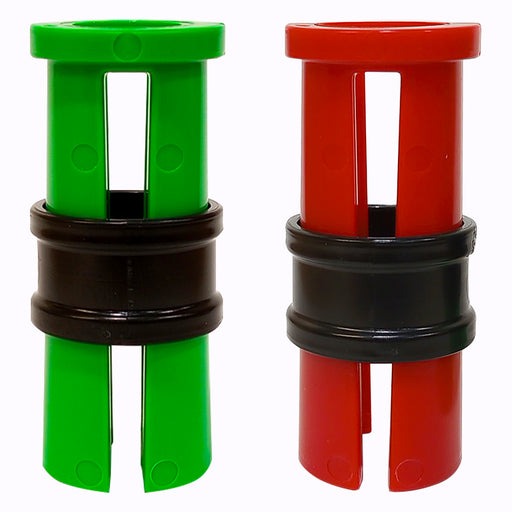
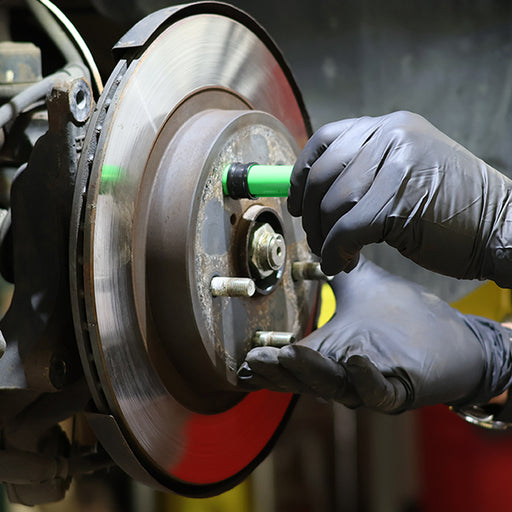
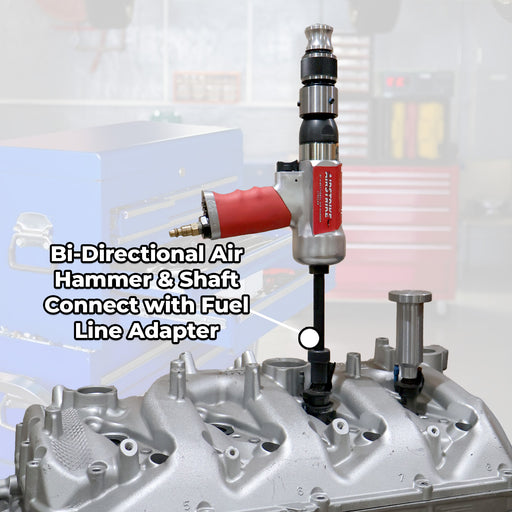
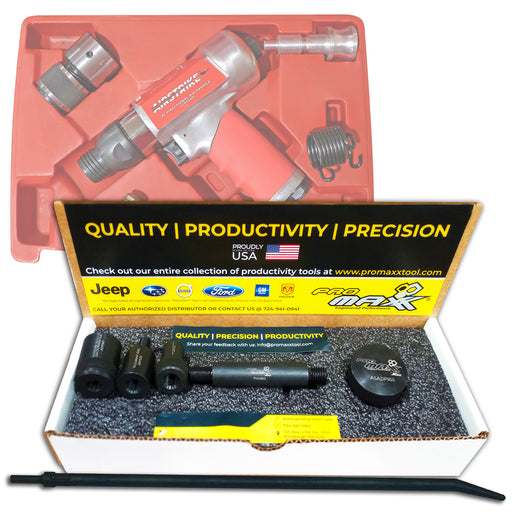
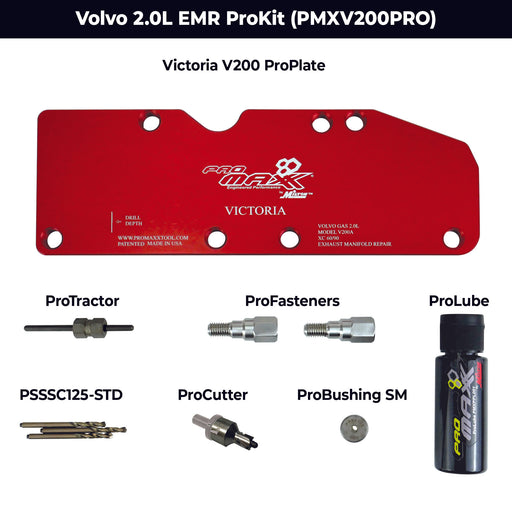
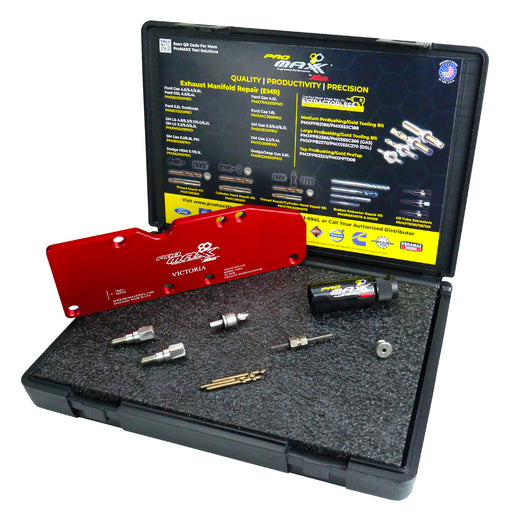
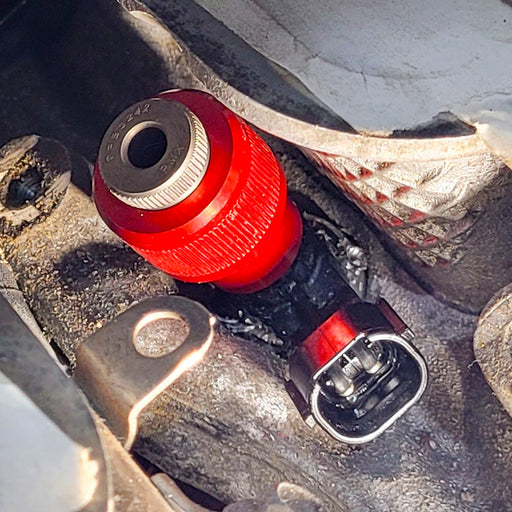
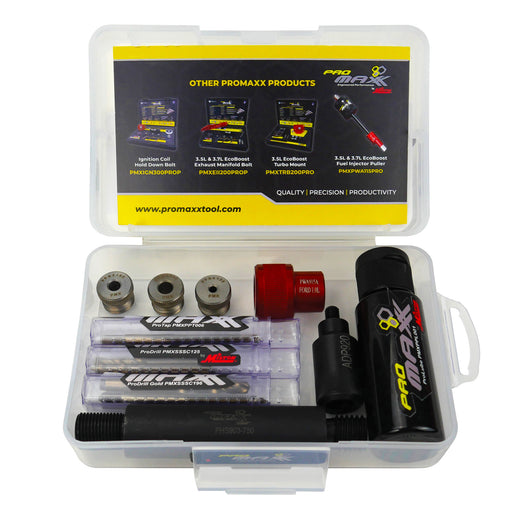
Comments
Leave a comment